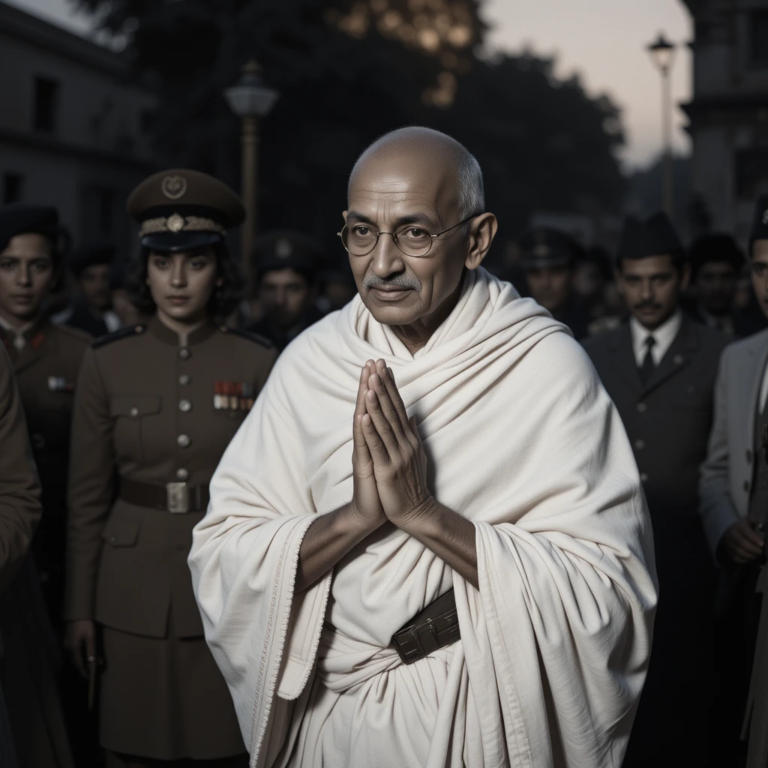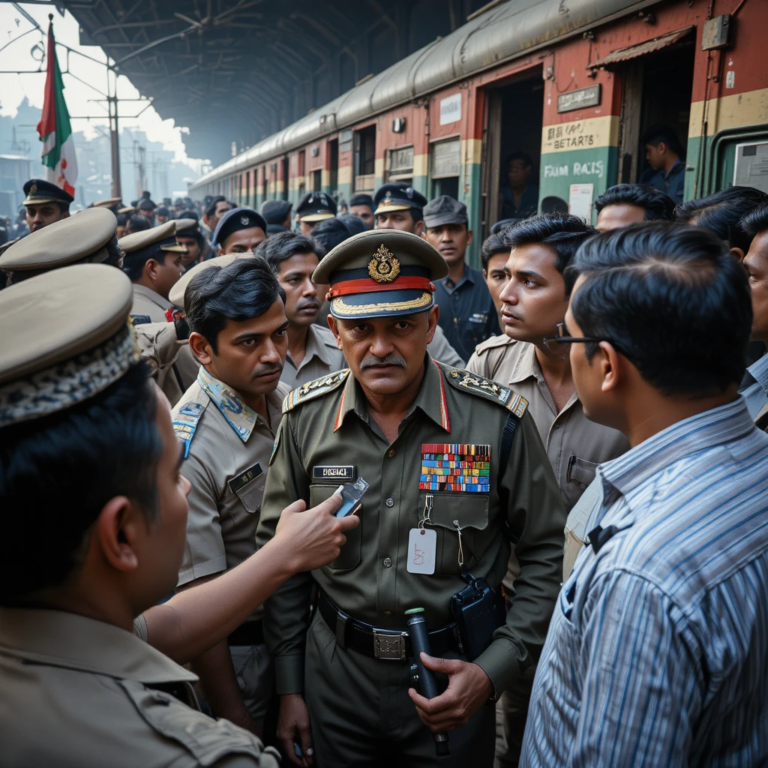Introduction
India’s democracy, the largest in the world, relies on the integrity of its electoral process, safeguarded by the Election Commission of India (ECI), a constitutional body established under Article 324 of the Indian Constitution. This article provides a comprehensive analysis of the ECI’s role in upholding democratic principles, focusing on its responsibilities, recent controversies, and the Bharatiya Janata Party’s (BJP) defense of the institution against serious allegations of voter fraud. On August 7, 2025, Rahul Gandhi, the Leader of Opposition (LOP) in the Lok Sabha, presented what he called “atom bomb proof” evidence of “vote chori” (vote theft), accusing the ECI of colluding with the BJP to manipulate voter lists and influence elections, particularly in the Mahadevapura Assembly segment of Bengaluru, Karnataka [1][2][6]. These allegations, supported by a six-month investigation, have sparked intense debate, raising critical questions about the ECI’s impartiality, the BJP’s motives in shielding it, and the implications for India’s democratic credibility. This analysis examines the ECI’s constitutional mandate, scrutinizes the LOP’s evidence, explores why the BJP is defending the ECI despite alleged “sins” and fraud, and evaluates the broader impact on trust in India’s electoral system.
Table of Contents
Section 1: The Constitutional Role of the Election Commission of India
Constitutional Mandate and Responsibilities
The ECI is enshrined under Article 324 of the Indian Constitution, which grants it the “superintendence, direction and control of the preparation of the electoral rolls for, and the conduct of, all elections to Parliament and to the Legislatures of every State” [20]. This broad mandate positions the ECI as the cornerstone of India’s democratic process, tasked with ensuring free, fair, and inclusive elections. Its core responsibilities include:
- Preparation and Maintenance of Electoral Rolls: Ensuring accurate voter lists, free of duplicates, ghosts, or errors, as mandated by Article 326, which establishes universal adult suffrage for citizens above 18 not disqualified by law (e.g., for non-residence, unsoundness of mind, or criminality) [21].
- Conducting Elections: Overseeing polling, vote counting, and result declarations, ensuring compliance with the Representation of the People Acts, 1950 and 1951 [25].
- Enforcing the Model Code of Conduct (MCC): Regulating campaign practices to prevent malpractices like hate speech or voter bribery [27].
- Ensuring Inclusivity and Non-Discrimination: Upholding Article 325, which prohibits discrimination in electoral rolls based on religion, race, caste, or sex [21].
- Transparency and Accountability: Publishing voter lists for public scrutiny and addressing grievances, as per Section 22 of the Representation of the People Act, 1950 [29].
The ECI’s independence is paramount, operating outside direct executive control and answerable primarily to the judiciary and Parliament. Its decisions are binding during elections, with limited judicial interference under Article 329, which restricts courts from intervening mid-process [29]. The Supreme Court’s ruling in T.N. Seshan vs. Union of India(1995) reinforced this autonomy, emphasizing the ECI’s role as a bulwark against political interference [30].
Strengths in Upholding Democracy
The ECI has earned global acclaim for managing elections with over 900 million voters in 2024. Innovations like Electronic Voting Machines (EVMs), voter ID cards, and online portals (e.g., NVSP) have modernized processes [26]. Its proactive revisions, such as the Special Intensive Revision (SIR) in Bihar, aim to purge fake entries, aligning with Article 326’s mandate for a clean electorate [19]. The introduction of NOTA in 2013, following PUCL vs. Union of India, enhanced voter choice, reflecting responsiveness to democratic needs [29].
Challenges and Vulnerabilities
Despite its stature, the ECI faces accusations of bias, particularly under the 2023 Chief Election Commissioner and Other Election Commissioners Act, which gives the executive a majority in appointing commissioners [40]. This has fueled perceptions of compromised independence, exacerbated by delays in releasing voter turnout data, resistance to digital voter lists, and controversial Aadhaar linkages [37][39]. Allegations of voter suppression and fraud, as raised by Gandhi, suggest systemic flaws that could violate Articles 14 (equality) and 21 (right to privacy, as per Justice K.S. Puttaswamy vs. Union of India, 2017) [24].
Section 2: Allegations of Voter Fraud by the Leader of Opposition
On August 7, 2025, Rahul Gandhi presented detailed evidence of electoral fraud, accusing the ECI of colluding with the BJP to “steal” elections [1][2][6]. His team’s six-month analysis of physical voter lists in Mahadevapura, Bengaluru, uncovered over 1,00,250 fraudulent votes—approximately 15% of the segment’s 6.5 lakh voters—allegedly aiding BJP candidate P.C. Mohan’s victory [6][13][62]. The evidence included:
- Duplicate Voters: Thousands listed multiple times (up to 10-15 instances) with identical names, photos, and details but different booths or addresses, e.g., Aditya Srivastava registered across states [13].
- Fake Entries: Nonsensical details like father’s name “dfojgaidf” or house number “0,” with 4,132 blurred photos [6].
- Bulk Registrations: 46-80 voters at single, often non-existent, addresses, totaling over 40,000 bogus entries [70].
- Deletions and Additions: Legitimate voters, especially from opposition areas, removed without notice, replaced by fakes [9].
- Form-6 Misuse: Repeat applications with altered photos creating duplicate EPIC numbers [82].
Gandhi extended these claims to Maharashtra (40 lakh suspicious additions), Haryana, Madhya Pradesh, and Bihar’s SIR, alleging a pattern favoring the BJP [16]. He criticized the ECI for providing non-machine-readable lists (7-foot paper stacks), destroying CCTV footage, and refusing Excel data, which could detect anomalies instantly [11][37]. Allies like AAP and Congress President Mallikarjun Kharge supported demands for transparency, citing past Delhi issues [35]. The ECI responded by demanding a signed oath from Gandhi and emphasizing routine revisions, but critics argue it sidesteps core issues [19][75]. Social media amplified the debate, with X users calling for probes or dismissing it as rhetoric [49].
Section 3: Why the BJP is Protecting the ECI: Shielding Alleged “Sins” and Fraud
If Gandhi’s allegations are substantiated, the BJP’s defense of the ECI can be seen as a strategic effort to shield a system that facilitates its electoral dominance, concealing “sins” of voter list manipulation. This defense operates through political narratives, institutional leverage, and denial of evidence, with significant implications for democratic trust.
Political Beneficiary of Alleged Fraud
Gandhi’s evidence suggests the BJP benefits from manipulations, as seen in Mahadevapura, where 1 lakh fraudulent votes allegedly secured P.C. Mohan’s win, and in Maharashtra, with 40 lakh suspicious additions [6][16]. BJP leaders like Kiren Rijiju and Sambit Patra dismissed these as “baseless” and “irresponsible,” accusing Gandhi of insulting voters and deflecting Congress’s losses [31][46]. Patra’s warning of Gandhi being labeled a “traitor” shifts focus from evidence to personal attacks, maintaining narrative control [46]. If true, this defense protects a rigged system that counters anti-incumbency, ensuring BJP dominance.
Institutional Control via the 2023 Act
The 2023 Act allows a selection committee—comprising the Prime Minister, a Union Minister, and the LOP—to appoint ECI officials, giving the executive a 2:1 majority [40]. Critics argue this compromises independence, enabling the BJP to influence actions like voter purges or SIR in Bihar, which allegedly target opposition voters (e.g., Muslims and marginalized groups) [39]. By defending the ECI, the BJP shields this mechanism, ensuring control over electoral processes. The ECI’s swift rebuttals and notices to opposition leaders, while resisting digital voter lists or CCTV footage, suggest alignment [19][37].
Strategic Narrative and Political Consolidation
The BJP’s defense frames opposition allegations as anti-democratic, rallying its base ahead of Bihar and Uttar Pradesh elections [34]. By endorsing the ECI’s “routine” revisions, it avoids scrutiny on floating voters or Aadhaar-linked privacy risks [16][37]. This narrative diverts attention from evidence, portraying critics as sore losers, as seen in references to Congress’s silence on Telangana wins [31].
Concealing “Sins”: A Pattern of Denial
The “sins” of alleged fraud—duplicates, deletions, and fake entries—violate Articles 324, 325, and 326. The BJP’s defense, dismissing evidence as “absurd,” conceals these by leveraging the ECI’s authority [19]. This mirrors a pattern of denying accountability, seen in resisting judicial oversight or transparency demands, undermining the constitutional spirit of impartiality [40].
Section 4: Deep Analysis of ECI’s Role in Upholding Democracy
Constitutional Expectations vs. Current Realities
The ECI is expected to embody the Constitution’s spirit—equality, justice, and liberty—ensuring every vote counts. Article 324 demands impartiality, while Article 326 mandates a clean electorate [20][21]. However, Gandhi’s allegations expose failures:
- Compromised Independence: The 2023 Act tilts appointments toward the executive, risking bias and violating Article 324’s ethos [40]. Past ECI neutrality under T.N. Seshan contrasts with current perceptions [30].
- Transparency Deficits: Non-searchable lists and destroyed CCTV footage hinder scrutiny, clashing with Article 325 [37].
- Privacy Violations: Public disclosure of voter details risks misuse, conflicting with Article 21 [24].
- Disenfranchisement: SIR deletions without notice may violate Article 14, affecting marginalized groups [39].
Impact of Alleged Failures
If substantiated, these lapses erode trust, lower turnout, and fuel polarization. The Supreme Court’s order to disclose missing voter data signals concern, yet the ECI’s opacity deepens skepticism [10]. Internationally, fraud allegations could tarnish India’s democratic image, impacting foreign relations and investment [15].
Recommendations for Reform
To align with constitutional mandates, the ECI must:
- Enhance Transparency: Provide digital, anonymized voter lists and preserve CCTV/EVM data [37].
- Restore Independence: Reform the 2023 Act for broader appointment panels [40].
- Protect Privacy: Implement safeguards under the Digital Personal Data Protection Act, 2023 [24].
- Prevent Disenfranchisement: Simplify verification and halt targeted deletions [39].
- Leverage Technology: Use AI to detect fraud without bias [49].
Section 5: Implications of BJP’s Defense: National and International Fallout
National Doubts and Polarization
The BJP’s dismissal of evidence as “absurd” risks deepening distrust, especially against Gandhi’s data-driven claims [19][49]. Social media reflects this divide, with X users demanding probes or labeling it opposition drama [16]. This could suppress turnout and fuel protests, undermining participation.
International Repercussions
Globally, fraud allegations could invite scrutiny from election watchdogs, impacting India’s democratic credentials [15]. Past controversies, like the 2019 Kashmir autonomy revocation, strained ties, and similar fallout could follow [26]. Reduced FDI and strained relations may weaken India’s global standing.
Broader Context: Pattern of Defending Narratives
The BJP’s defense aligns with dismissing criticism, seen in PM Modi’s controversial statements (e.g., clouds hiding jets from radar) and RSS-driven misinformation [45][0]. This risks portraying governance as narrative-driven, eroding trust when defending a potentially compromised ECI.
Conclusion
Gandhi’s allegations, backed by evidence, challenge the ECI’s role as democracy’s guardian. The BJP’s defense, shielding alleged “sins,” risks eroding trust and India’s global image. Urgent reforms—transparency, independence, and inclusivity—are needed to restore faith and uphold the Constitution’s democratic spirit.
References and Primary Sources
References
- Rahul Gandhi Alleges ‘Massive’ Voter Fraud, BJP Denies Charges – https://www.youtube.com/watch?v=x1fYWhv1Zik
- Lok Sabha polls: Rahul Gandhi alleges ‘massive’ voter fraud – https://www.thehindu.com/news/national/rahul-gandhi-alleges-massive-voter-fraud-2024-lok-sabha-elections-bjp-election-commission-of-india/article69904858.ece
- Five takeaways from Rahul Gandhi’s “atom bomb proof of vote chori” – https://www.indiatoday.in/india-today-insight/story/five-takeaways-from-rahul-gandhis-atom-bomb-proof-of-vote-chori-2767958-2025-08-07
- Rahul Gandhi alleges voter fraud: Should poll panel give point-by … – https://www.indiatoday.in/india/video/rahul-gandhi-alleges-voter-fraud-should-poll-panel-give-point-by-point-rebuttal-experts-debate-2767969-2025-08-07
- Rahul Gandhi’s Big Claim Against EC With Proof – https://www.youtube.com/watch?v=pLS8znaTZZ8
- Rahul Gandhi Presents BIG PROOF of Voter Fraud | Watch – https://www.youtube.com/watch?v=hkietcFAQeA
- EC vs Congress: Rahul Gandhi shows 5 ways ‘votes were stolen’ – https://timesofindia.indiatimes.com/india/ec-vs-congress-rahul-gandhi-shows-5-ways-votes-were-stolen-gives-proof/articleshow/123163782.cms
- Will the Election Commission Wake Up After Rahul Gandhi Presents … – https://m.thewire.in/article/government/will-ec-wake-up-rahul-gandhi-evidence-poll-fraud-mahadevapura
- Key takeaways from Gandhi’s Voter fraud presentation – https://www.reddit.com/r/unitedstatesofindia/comments/1mjvo9e/key_takeways_from_gandhis_voter_fraud_presentation/
- Poll body dares Rahul Gandhi to sign oath over ‘absurd’ vote theft … – https://www.indiatoday.in/india/story/election-commissions-sign-oath-dare-over-rahul-gandhis-absurd-poll-fraud-claim-2767900-2025-08-07
- Article 324 in Constitution of India – https://indiankanoon.org/doc/1481869/
- Article 326: Elections to the House of the People and to the … – https://www.constitutionofindia.net/articles/article-326-elections-to-the-house-of-the-people-and-to-the-legislative-assemblies-of-states-to-be-on-the-basis-of-adult-suffrage/
- Protecting and Preserving Voting Rights in India: Legal Status … – https://vajiramandravi.com/current-affairs/protecting-and-preserving-voting-in-india/
- Representation of the People Act, 1950 – https://indiankanoon.org/doc/1481869/
- ECI Official Website – https://eci.gov.in/
- Model Code of Conduct – https://eci.gov.in/mcc/
- Article 329 in Constitution of India – https://indiankanoon.org/doc/1098032/
- T.N. Seshan vs. Union of India (1995) – https://indiankanoon.org/doc/1481869/
- BJP hits back at Rahul over poll fraud claim – https://indianexpress.com/article/india/bjp-reacts-rahul-gandhi-voter-fraud-claim-10176325/
- Duplicate voters, fake addresses: Rahul Gandhi claims fraud in … – https://www.indiatoday.in/india/story/election-commission-colluding-with-bjp-to-steal-elections-rahul-gandhis-fresh-attack-on-poll-rigging-2767724-2025-08-07
- Rahul Gandhi Shares Karnataka “Votes Stolen Proof”, BJP Says … – https://www.ndtv.com/india-news/rahul-gandhi-election-commission-maharashtra-showed-something-wrong-rahul-gandhi-fresh-fire-at-poll-body-9038157
- Post by @SauravDassss on X – https://x.com/SauravDassss/status/1953466470127866235
- Post by @capksharma on X – https://x.com/capksharma/status/1953494330980589738
- Chief Election Commissioner and Other Election Commissioners Act, 2023 – https://www.india.gov.in/
- “Irresponsible, Shameless”: BJP Slams Rahul Gandhi’s Poll Fraud … – https://www.ndtv.com/india-news/irresponsible-shameless-bjp-slams-rahul-gandhis-poll-fraud-allegations-9041233
- Post by @poobathy on X – https://x.com/poobathy/status/1953432227716665688
- Post by @DMK_for_Life_ on X
- Post by @hakla_sarook on X
- EC vs Rahul Gandhi: Submit declaration on ‘vote chori’ claim, poll … – https://timesofindia.indiatimes.com/india/ec-vs-rahul-gandhi-submit-declaration-on-vote-chori-claim-poll-body-writes-to-congress-mp-asks-for-proof/articleshow/123163160.cms
- Post by @anuj_sharma_ji on X
Primary Sources
- Constitution of India, Article 324: Full text on ECI’s role in elections (https://indiankanoon.org/doc/1481869/).
- Constitution of India, Article 326: Full text on adult suffrage (https://indiankanoon.org/doc/1620503/).
- Rahul Gandhi’s Press Conference (August 7, 2025): Live on X (https://x.com/RahulGandhi/status/1953371162160873698).
- Representation of the People Act, 1950, Section 22: On voter list disclosure (https://indiankanoon.org/doc/1481869/).
- PUCL vs. Union of India (2013): Supreme Court ruling on NOTA (https://indiankanoon.org/doc/237570/).




